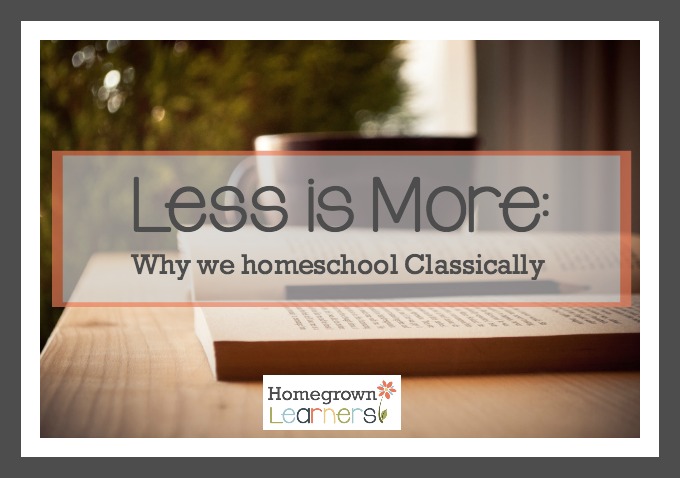I'm a huge fan of reading aloud.
My kids always have books they are reading on their own.
But, I'm not sure how much I've talked here about LISTENING to stories on audio.
Stories on audio are wonderful during quiet time, long car rides, or just because.
(like when you are playing LEGOS in your room and need a little company)
Do you have favorite CDs (or I guess it's MP3s now, right?) that your kids beg for whenever you get in the car or get the music player out?
I love that we have shared memories of quality stories - stories that make us a little better for having listened to them together.
Disclaimer: I have been compensated for this post, but I never share anything with my readers that we have not first used and can recommend 100%.
When to Use Audio Stories
So.... when do we use audios in our homeschool, and HOW do we use them?
Let's talk about that a bit before I tell you about our favorite new series!
There are so many ways to use audio stories - here are just a few things I've done over the years.
- Quiet Time: When my kids were little they always had a CD player set between their 2 rooms during quiet time. They always looked forward to quiet time... and SO DID I!
- In the Car: Now that my children are bigger, having a good audio story keeps everyone engaged in the car (and not listening to the radio, which we know isn't always the best). Audio stories are also perfect for long car trips.
- To Supplement History: I've always tried to choose audios that go along with the time period we are studying in history. A couple of years ago we would always listen to audios at lunch time together.
- In Place of Reading Aloud: Let's face it... there are seasons in our lives when a lot of reading aloud isn't feasible - but listening to an audio story is.
- To Keep Kids Occupied: Audio stories are perfect for keeping a child (or two or three) occupied while you are working with other children. You know your children are getting something GOOD and meaningful while your attention is elsewhere.
- Any other Time: Recently my son has been turning on his CD player and listening while he's building LEGOS in his room. He might also turn it on while he's waiting for my husband and me to tuck him in at night. Having this option (especially in the child's room) lets them make wise choices with their time.
The Heirloom Audio Adventures:
If you've even been a fan of The Adventures in Odyssey, the former producers of that series have something new for you... Heirloom Audio Adventures: The Extraordinary Adventures of G.A. Henty.
(Oh, and guess what? One of the producers is the grandfather of a Classical Conversations student -- thought my CC readers would appreciate that little fact! And... Kirk Cameron is a part of the project, too.)
These dramas, based on novels by GA Henty are historically accurate, and so very well done. The actors are superb and the musical scores are wonderful. I knew from the moment we started The Dragon and the Raven that my son would be HOOKED.
(Kirk Cameron says the dramas are "movies that played in the theater of the mind" - and he's right!)
About The Dragon & The Raven:
“The Danes have swept over every kingdom in England, laying waste to everything in their path. Join Edmund and the one man who is willing to stand against the invaders - the young King Alfred of Wessex. From standing in the shield-wall to sailing on the whale-road, Alfred and Edmund realize the nation’s only hope is to turn back to the God they have abandoned. Can the two young warriors turn the tide of the war and save their world?”
Each store is approximately 2 hours long and extremely engaging.
I love these stories because each of them point our children to God.
Each adventure has also been meticulously researched. Here's what the creators of Heirloom Audio adventures say:
“At Heirloom Audio Productions, we are especially passionate about bringing real history to life. This inevitably means a bit of detective work as we try to figure out what actually happened in the story we’re attempting to tell.
Our task is further complicated by the fact that so much of what passes for any type of history today has been “sanitized” by secularists and is often beyond the point of historical recognition.
That said, our passion and love of history takes us to some amazing places and allows us to do some pretty unusual things as we sort out the details of a sometimes murky past.”
Yes! This is exactly what we look for as we seek to teach our children the unwavering TRUTH of God's word! It isn't easy to find resources that help us in this task with our children.
Inside the CD case is also a memory verse for the story:
In addition to The Dragon and the Raven, there are three other stories: In Freedom's Cause, With Lee in Virginia, and Under Drake's Flag.
You can also find additional teaching resources for each of the stories online - which is great if you like to extend your children's learning a bit.
You can watch trailers of each of the stories and see for yourself why we like them so much.
BOTH sets of audio dramas can be purchased for just $79.95 (including bonuses and other features both sets are valued at over $400!).
Purchase HERE.
(Once you click "add to cart" it will you your subtotal is $79.95 for BOTH sets with some really fun bonuses, too!)
The Giveaway
Heirloom Audio is giving away one set of all four stories (which includes the CDs and mp3s) to one lucky reader.
Simply follow the directions in the Rafflecopter widget to enter. (United States residents only, please.)
Good luck! I know you will love these stories as much as we have!










